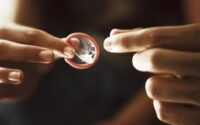Here’s why Daylight Saving Time is bad for your health
The time to “fall back” is upon us.
On Sunday, Nov. 6, at 2 a.m., clocks will be turned back by one hour, changing the local time to 1 a.m.
Sunrise and sunset will be one hour earlier than it has been, so there will be more light in the morning.
Daylight saving time is a controversial practice — with the US Senate voting unanimously to get rid of the twice-a-year time change — and it’s also linked to health concerts.
While getting an extra hour of sleep seems exciting, some studies show that moving from daylight time to standard time disrupts natural sleep cycles, which can affect a person’s mental and physical health.
The human brain has a biological clock, or a circadian rhythm, running on a 24-hour cycle, according to the Mayo Clinic.

Disruption to a person’s sleep schedule — whether it be gaining or losing an hour of sleep — demands a difficult adjustment to everyday life.
Sleep disruption can also lead to a higher risk of cardiovascular disease. A study done by researchers at Harvard Medical School and the Massachusetts General Hospital in 2019 looked at the link between sleep deficiency and heart disease using mice.
After 16 weeks, mice who had disrupted sleeping patterns developed more plaque in their arteries compared to the mice with normal sleep cycles. The mice with sleep disruption also had double the amount of white blood cells as well as lower amounts of hypocretin, a hormone that helps regulate sleeping and waking.

The findings of the study suggest a good sleep cycle is important to maintain heart health.
“This appears to be the most direct demonstration yet of the molecular connections linking blood and cardiovascular risk factors to sleep health,” Dr. Michael Twery, the former director of the National Heart, Lung, and Blood Institute’s sleep-disorder research, said of the study.
Losing an hour of sleep during the springtime caused a 24% spike in heart attack visits in US hospitals every year on the Monday after springing forward. The opposite occurs in the fall, with heart attack visits dropping 21% the Monday after gaining an extra hour, according to a study.
“That’s how fragile and susceptible your body is to even just one hour of lost sleep,” Matt Walker, author of “Why We Sleep,” told Insider in 2018.
On the other hand, adapting to evening coming earlier in the winter also leads to an increase in car accidents. Drivers are 10% to 15% more likely to be in a car crash between 4 and 7 p.m. in November compared to the rest of the day, according to research compiled by Zurich Insurance in 2020.
And standard time can wreak emotional havoc too.
The extra hour of daylight in the morning we’re supposed to get when we fall back only lasts a couple of weeks before the winter days get shorter and the sunrise inevitably gets later.
In 2022, the shortest day of the year — also known as the winter solstice — will be Dec. 21, when the sun sets at 4:48 p.m. — making the day almost six hours shorter than that of the June solstice.
A decrease in sunlight can affect a part of the brain called the hypothalamus, which can alter levels of melatonin and serotonin, as well as the body’s biological clock.

Given that there are more hours of the day spent in darkness than in daylight, some people will experience low moods and depression, as well as fatigue, muscle pain and weakened bones from a lack of natural vitamin D.
Along with low moods, some will experience seasonal affective disorder, appropriately called SAD or “winter depression,” due to the shorter days, with symptoms including loss of pleasure or interest in normal activities, irritability, feelings of despair, lack of energy, difficulty concentrating and increased time spent sleeping, according to the UK’s National Health Service.
Fortunately, there are a few methods to help you adjust to setting the clock back.
Having a daily routine and an environment that promotes uninterrupted sleep is a good place to start, according to Dave Gibson, founder of the Sleep Site blog. He writes that exercising in the morning and doing relaxing activities in the evening will help a person sleep better at night.
Gibson also suggests preparing your body for the change by staggering your sleep schedule. For example, go to bed a half-hour later on the Friday night before the clocks change so your body naturally wakes up a half-hour later on Saturday morning. Repeat the same Saturday night, until you’ve shifted by one hour by Sunday.


